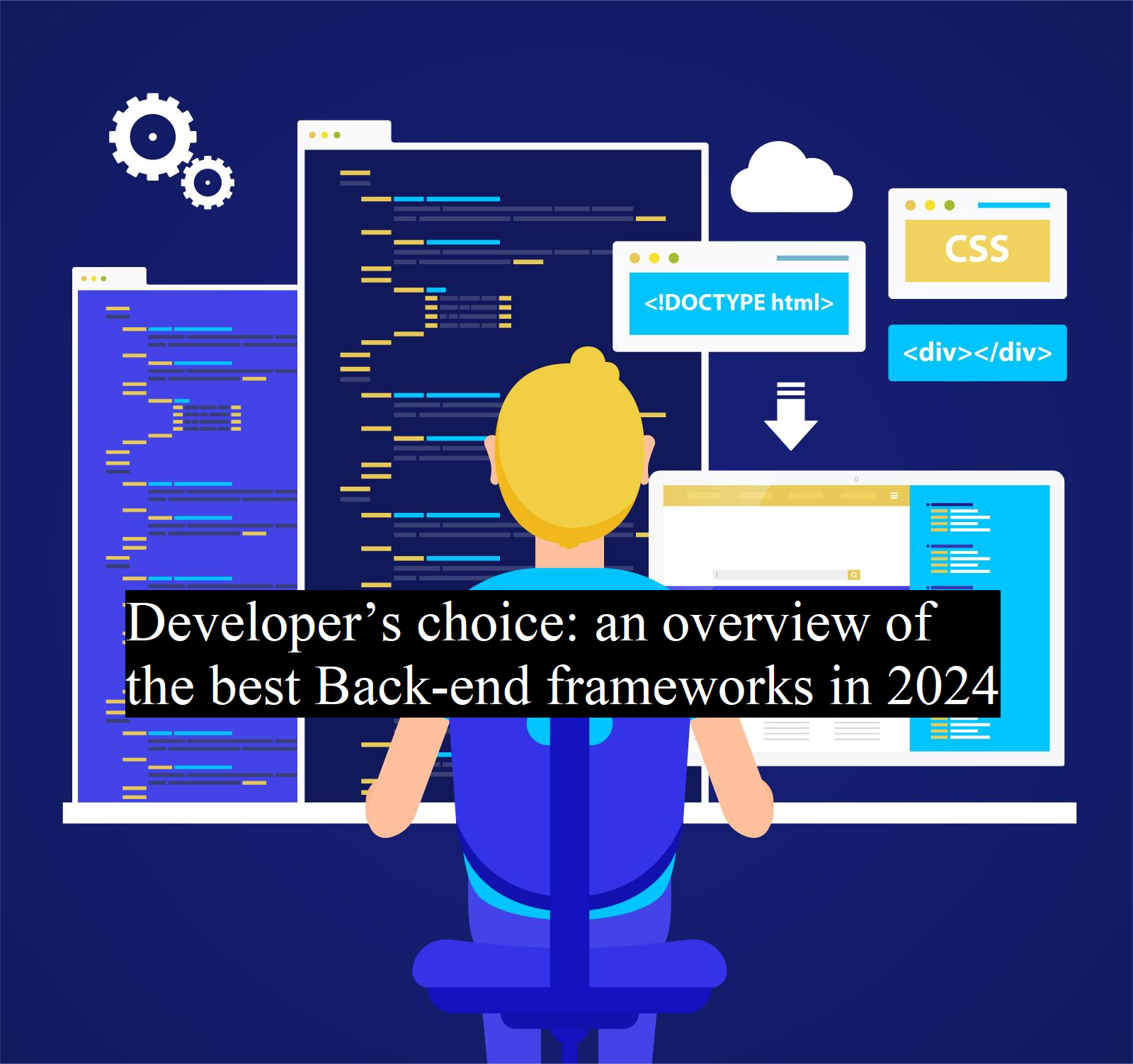The world of web development keeps changing at a rapid pace. Backend frameworks serve as the engine responsible for the performance, functionality, and scalability of websites. They offer developers various advantages like advanced security features, pre-built templates, and enforced coding standards.
Backend frameworks provide developers with everything they need to create efficient, secure, and robust web applications. However, as hundreds of backend frameworks are available, selecting the right can be confusing.
In this article, you will explore the list of the best backend frameworks to leverage in 2024. Let’s dive in:
Significance of Backend Framework
Are you still wondering why backend frameworks matter so much in web development? Read on to explore everything in detail.
- Streamlined Development
The backend frameworks offer reusable components and a structured environment to the developers. As a result, it helps significantly lower the time required to write codes. By streamlining and speeding up the development process, the backend frameworks enable developers to focus more on building core functionalities.
- Consistency and Maintainability
With backend frameworks, keeping the codebase consistent and organized becomes simple and easy. This consistency can help effectively maintain the applications over time. Moreover, owing to well-documented frameworks, onboarding new developers becomes a hassle-free affair.
- Performance Optimization
Backend frameworks come with different features and tools to help developers manage resources effectively, write codes efficiently, and optimize database queries. As a result, you can be rest assured about the smooth functioning of applications even under heavy loads.
- Scalability
With the increase in the size of applications, scalability becomes a vital factor to consider. That is where backend frameworks prove to be beneficial. They support scalable architectures and enable applications to effectively handle increased data volumes and traffic without any degradation in performance.
Top Backend Frameworks to Use in 2024
Are you ready to leverage the backend frameworks for web development? Delve into the best frameworks that can deliver top-notch outcomes.
#1 Laravel
Did you know that 75.9 percent of all websites on the web are powered by PHP? Yes, that’s true! When it comes to PHP backend frameworks, Laravel is undoubtedly the top choice among developers.
The open-source framework is suitable for building, running, and deploying symphony-based web applications. It comes with modular packages and a dedicated dependency manager to simplify operations. The ability of Laravel to interact with different app development tools and relational databases is among the main reasons for its growing popularity.
Pros:
- Simple data caching
- Extensive testing
- Easy authentication and convenient log handling
Cons:
- No built-in support
- Steep learning curve
#2 Django
When it comes to the best backend frameworks for web development, you cannot leave behind Django. The open-source MVC framework is ideal for the development of feature-rich, database-driven, and modern websites and applications. This framework leverages Python to ensure code reusability and great pluggability.
As a result, you can expect less coding and shorter development cycles. Some of the popular apps using the Django framework are Mozilla, Discus, and The Washington Times.
Pros:
- High scalability
- Robus features
- Easy to learn and use
Cons:
- May offer limited flexibility
- Initial setup is time-consuming
Read: Decoding ERP Software for Enhanced Business Acumen
#3 Node.JS
Node.JS is an open-source, cross-platform JavaScript framework that comes with the capability of processing large amounts of data. This framework comes with the “Single Threaded Event Loop” architecture that helps in the management of several clients simultaneously.
The apps built using Node.JS can run asynchronously. Therefore, they are highly scalable. Other appealing features of this backend framework include quick code execution, event-driven, and Node Package Manager.
Pros:
- Suitable for real-time applications
- Large open-source community
- Highly scalable with microservices
Cons:
- Limited enterprise-level libraries
- May not be ideal for CPU-intensive tasks
#4 Express.JS
Express.JS is a flexible and lightweight Node.JS framework suitable for building web applications, APIs, and microservices. As it is an opinion-based framework, it allows developers to organize codes as per their requirements instead of using the pre-determined format only.
Moreover, Express.JS comes with a simple and minimalistic design. So, you can expect quick development of applications. The event-driven and non-blocking architecture of this backend framework allows the development of high performing and scalable applications.
Pros:
- Active and large community
- Easy to learn and use
- Extensive resources and documentation
Cons:
- Steep learning curve for beginners
- Lack of convention and structure
#5 Ruby on Rails
Ruby on Rails is a top-rated MVC framework ideal for the development of server-side applications with default database structures, services, and web pages. As this framework leverages JSON and XML formats for data transfer, you can be rest assured of the rapid development of web apps.
Model-view-controller or MVC serves as the foundation of this framework. It comes with an extensive toolset and ensures optimum coverage of backend functionalities. The prominent features of Ruby on Rails are database support, scaffolding, and automated deployment.
Pros:
- Excellent choice for startups and MVP
- Elegant code and developer-friendly
- Built-in tools for common development tasks
Cons:
- Less suitable for custom solutions
- Limited scalability for large apps
Conclusion
Want to get started on your web development project? Choosing the best backend framework is at the core of your project’s success. By now, you must have an idea of the top frameworks like Node.JS, Django, Laravel, Ruby on Rails, and Express.JS.
However, the right choice will depend on the unique requirements of your business and the type of application you want to build. Partner with professional experts and build feature-rich and scalable applications for enhanced outcomes.
Author’s Bio:
Harikrishna Kundariya is the Co-founder, Director, & Marketer of eSparkBiz Technologies – an excellent Software Development Company. His 12+ years of profound experience enables him to create Digital Innovations for Startups & large Enterprise.
